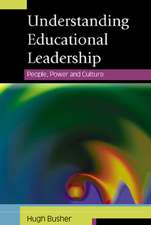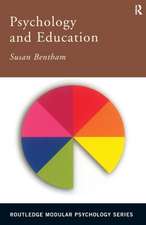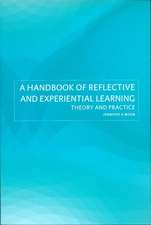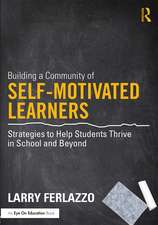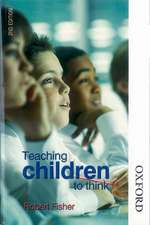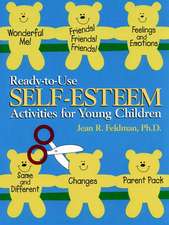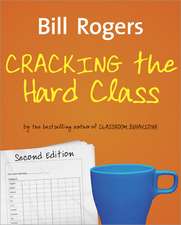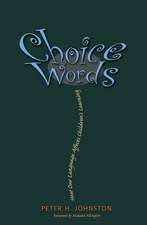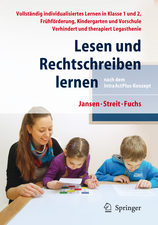Argumentation and Education: Theoretical Foundations and Practices
Editat de Nathalie Muller Mirza, Anne-Nelly Perret-Clermonten Limba Engleză Paperback – 26 noi 2014
Argumentation and Education answers these and other questions by providing both theoretical backgrounds, in psychology, education and theory of argumentation, and concrete examples of experiments and results in school contexts in a range of domains. It reports on existing innovative practices in education settings at various levels.
| Toate formatele și edițiile | Preț | Express |
|---|---|---|
| Paperback (1) | 638.24 lei 6-8 săpt. | |
| Springer Us – 26 noi 2014 | 638.24 lei 6-8 săpt. | |
| Hardback (1) | 644.49 lei 6-8 săpt. | |
| Springer Us – iul 2009 | 644.49 lei 6-8 săpt. |
Preț: 638.24 lei
Preț vechi: 750.88 lei
-15% Nou
Puncte Express: 957
Preț estimativ în valută:
122.12€ • 127.20$ • 101.81£
122.12€ • 127.20$ • 101.81£
Carte tipărită la comandă
Livrare economică 28 martie-11 aprilie
Preluare comenzi: 021 569.72.76
Specificații
ISBN-13: 9781489985286
ISBN-10: 148998528X
Pagini: 252
Ilustrații: VII, 242 p.
Dimensiuni: 155 x 235 x 13 mm
Greutate: 0.36 kg
Ediția:2009
Editura: Springer Us
Colecția Springer
Locul publicării:New York, NY, United States
ISBN-10: 148998528X
Pagini: 252
Ilustrații: VII, 242 p.
Dimensiuni: 155 x 235 x 13 mm
Greutate: 0.36 kg
Ediția:2009
Editura: Springer Us
Colecția Springer
Locul publicării:New York, NY, United States
Public țintă
ResearchCuprins
1.- Argumentation as an Object of Interest and as a Social and Cultural Resource.- Psychosocial Processes in Argumentation.- Argumentation and Learning.- Argumentative Interactions and the Social Construction of Knowledge.- Argumentative Design.- 2.- Developing Argumentation: Lessons Learned in the Primary School.- Argumentation in Higher Education: Examples of Actual Practices with Argumentation Tools.- The Argumentum experience.
Recenzii
From the reviews:
“The book Argumentation and Education provides a very wide panorama on argumentation theories. … Textual genres help students to situate and compare argumentation practices in all the sociolinguistic practices. … Hence, analysing more situations engaging students in direct dialogue, without any technological mediation, would have been interesting. … transformations are crucial to the understanding of links between argumentation and education. In this matter, a didactic approach … is most suitable for describing and explaining how social and cultural practices transform into academic ones.” (Roxane Gagnon, Bulletin Suisse de Linguistique Appliquée, Issue 91, 2010)
“This edited collection is a very welcome addition to texts in the field of argumentation and education. … When woven in with the editors’ own background in social psychology and psychology, the resulting cocktail is a well-balanced, heady and powerful one. … In total there are only ten contributors–but they are all key thinkers in the field and eloquent writers too. This is a book well worth recommending to university libraries and especially for courses on argumentation at school and higher education levels.” (Richard Andrews, Argumentation, Vol. 24, 2010)
“The book Argumentation and Education provides a very wide panorama on argumentation theories. … Textual genres help students to situate and compare argumentation practices in all the sociolinguistic practices. … Hence, analysing more situations engaging students in direct dialogue, without any technological mediation, would have been interesting. … transformations are crucial to the understanding of links between argumentation and education. In this matter, a didactic approach … is most suitable for describing and explaining how social and cultural practices transform into academic ones.” (Roxane Gagnon, Bulletin Suisse de Linguistique Appliquée, Issue 91, 2010)
“This edited collection is a very welcome addition to texts in the field of argumentation and education. … When woven in with the editors’ own background in social psychology and psychology, the resulting cocktail is a well-balanced, heady and powerful one. … In total there are only ten contributors–but they are all key thinkers in the field and eloquent writers too. This is a book well worth recommending to university libraries and especially for courses on argumentation at school and higher education levels.” (Richard Andrews, Argumentation, Vol. 24, 2010)
Textul de pe ultima copertă
During the last decade, argumentation has attracted growing attention as a means to elicit processes (linguistic, logical, dialogical, psychological, etc.) that can sustain or provoke reasoning and learning. Constituting an important dimension of daily life and of professional activities, argumentation plays a special role in democracies and is at the heart of philosophical reasoning and scientific inquiry. Argumentation, as such, requires specific intellectual and social skills. Hence, argumentation will have an increasing importance in education, both because it is an important competence that has to be learned, and because argumentation can be used to foster learning in philosophy, history, sciences and in many other domains.
However, learning argumentation and learning by arguing, at school, still raise theoretical and methodological questions such as: How do learning processes develop in argumentation? How to design effective argumentative activities? How can the argumentative efforts of pupils can be sustained? What are the psychological issues involved when arguing with others? How to evaluate and analyze the learners’ productions?
Argumentation and Education answers these and other questions by providing both theoretical backgrounds, in psychology, education and theory of argumentation, and concrete examples of experiments and results in school contexts in a range of domains. It reports on existing innovative practices in education settings at various levels.
However, learning argumentation and learning by arguing, at school, still raise theoretical and methodological questions such as: How do learning processes develop in argumentation? How to design effective argumentative activities? How can the argumentative efforts of pupils can be sustained? What are the psychological issues involved when arguing with others? How to evaluate and analyze the learners’ productions?
Argumentation and Education answers these and other questions by providing both theoretical backgrounds, in psychology, education and theory of argumentation, and concrete examples of experiments and results in school contexts in a range of domains. It reports on existing innovative practices in education settings at various levels.
Caracteristici
Addresses the need for argumentation education strategies on all grade levels Emphasizes the multidisciplinary nature of argumentation Provides theoretical framework and practical examples for both researchers and educators

